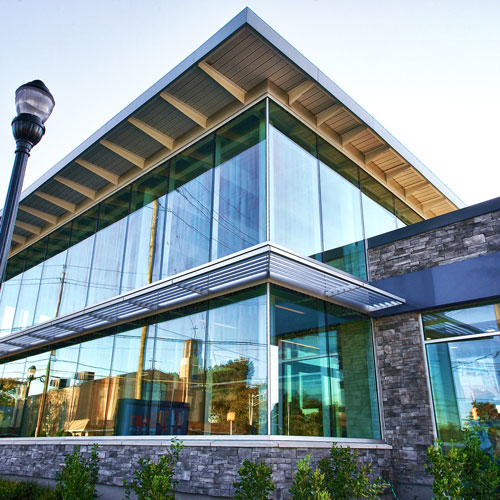
As a junior at Tufts University, David Ruttenberg’s interest in real estate sparked when the rent on his newly renovated rental home increased. Thirteen years later, as a partner at Marc Realty Residential, he spends his time converting Chicago buildings into apartments or condos. He spoke to American Builders Quarterly about the various pros and cons of the two building types and why he prefers fixing up apartments.
How did you get into real estate?
I got a master’s in real estate economics and finance from the London School of Economics then came back to Chicago and worked for a developer for six months. I didn’t like the math on the condo deal they were doing in Des Plaines, so I started a fund, Citerra Capital Partners LLC, with a partner, Daniel Sobelman, who’s now at Barnett Capital. We raised $4.5 million from friends and family and did six deals. Despite investing the funds in 2006 and 2007, we returned everyone’s money plus a small return.
That must have been close to 2008, when the housing market collapsed. What happened then?
Well, the world fell apart. That’s when I partnered with Chicago Apartment Finders and Marc Realty to form Marc Realty Residential LLC. I’d done some residential deals, but the partnership helped me establish a bigger presence. By 2012, we’d acquired nearly 60 multifamily buildings on the city’s north side. We do either adaptive reuse, where we convert office and industrial space into residential space, or we go in and finish existing projects, many of them failed condo conversions and older apartment buildings in need of a fix-up.
Was there a pivotal moment during the transition? Something that made you say, “aha,” and change your focus?
I don’t think one singular moment has defined how I operate. But I did have the benefit of watching the real estate world inflate. I started in 2005, when prices were going up, up, up. Everyone was doing condos, but I stayed away from them and focused on apartments because I was scared of a market that did nothing but go up. A lot of guys got burned. Maybe now the same thing is happening with apartments. But, with apartments, you have a defined cash-flow stream, not some theoretical value like you do with condos.
What are the condo and apartment markets in Chicago like today?
Condos will win in some areas, like a project at Delaware and State where you can get $800 a foot for them. But, there are very few instances in which condos make more sense than apartments. We’re doing a project at 117 South Peoria Street, in the West Loop, that would make a lovely condo site, but we think condos are only worth $400 a foot there, and apartments are worth $500 when you cap it out at a reasonable cap rate. Why take on the condo risk when you’re getting a lower return than you would on apartments? With apartments, you can live to fight another day because you have cash flow. If things go bad with condos, you’re sitting on empty inventory with a mortgage to pay and no cash coming in.

Are you worried at all that the apartment market is getting oversaturated?
Three million people live in the city. I don’t think 6,000 or 7,000 apartment units added to the inventory will change anything. What keeps me up at night is interest rates. A 100-basis-point movement in interest rates requires a 15 percent-or-higher movement in net operating income to get you back to the same value.
Do you have any favorite projects?
In 2012, we bought a 94-unit apartment building that was half-constructed on the far edge of the South Loop, at 2300 South Michigan Avenue. We finished construction, got the building leased up, and recently sold it. The financial returns were close to what we predicted, solidifying our investment model. In general, we’re not sellers; we like to finance and own long-term. But this was a good way to get cash back into our pockets.
What advice would you give someone seeking to get into the field?
Go and be a trader. It’s a lot more lucrative, and you don’t work 24 hours a day. But really, it’s about transaction volume. I see a lot of guys who try to put a deal together and want to control every piece of it, and the deals never happen. It’s better to have a small piece of something big than a big piece of nothing. And don’t ignore the plumbing. For one deal in Logan Square, we redid everything but the plumbing, and that was a big mistake because the recurring maintenance costs kill your cash flow. Now we replace all plumbing and electric.



